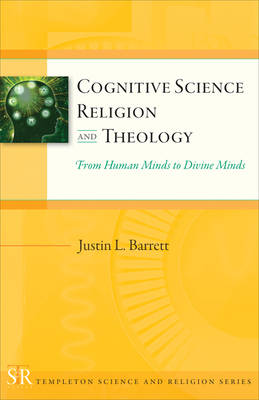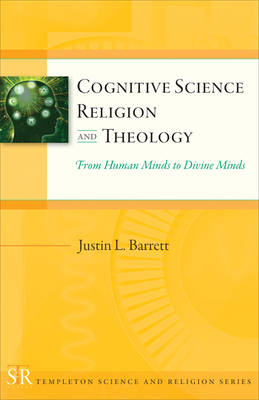
- Retrait gratuit dans votre magasin Club
- 7.000.000 titres dans notre catalogue
- Payer en toute sécurité
- Toujours un magasin près de chez vous
- Retrait gratuit dans votre magasin Club
- 7.000.0000 titres dans notre catalogue
- Payer en toute sécurité
- Toujours un magasin près de chez vous
35,45 €
+ 70 points
Description
Cognitive Science, Religion, and Theology is the eighth title published in the Templeton Science and Religion Series, in which scientists from a wide range of fields distill their experience and knowledge into brief tours of their respective specialties. In this volume, well-known cognitive scientist Justin L. Barrett offers an accessible overview of this interdisciplinary field, reviews key findings in this area, and discusses the implications of these findings for religious thought and practice. Cognitive science is the interdisciplinary study of minds and mental activity, and as such, it addresses a fundamental feature of what it is to be human. Further, as religious traditions concern ideas and beliefs about the nature of humans, the nature of the world, and the nature of the divine, cognitive science can contribute directly and indirectly to these theological concerns. Barrett shows how direct contributions come from the growing area called cognitive science of religion (CSR), which investigates how human cognitive systems inform and constrain religious thought, experience, and expression. CSR attempts to answer questions such as: Why do humans tend to be religious? And why are specific ideas (e.g., the possibility of an afterlife) so cross-culturally recurrent? Barrett also covers the indirect implications that cognitive science has for theology, such as human similarities and differences with the animal world, freedom and determinism, and the relationship between minds and bodies. Cognitive Science, Religion, and Theology critically reviews the research on these fascinating questions and discusses the many implications that arise from them. In addition, this short volume also offers suggestions for future research, making it ideal not only for those looking for an overview of the field thus far but also for those seeking a glimpse of where the field might be going in the future.
Spécifications
Parties prenantes
- Auteur(s) :
- Editeur:
Contenu
- Nombre de pages :
- 248
- Langue:
- Anglais
- Collection :
Caractéristiques
- EAN:
- 9781599473819
- Date de parution :
- 01-11-11
- Format:
- Livre broché
- Format numérique:
- Trade paperback (VS)
- Dimensions :
- 140 mm x 213 mm
- Poids :
- 249 g

Les avis
Nous publions uniquement les avis qui respectent les conditions requises. Consultez nos conditions pour les avis.






